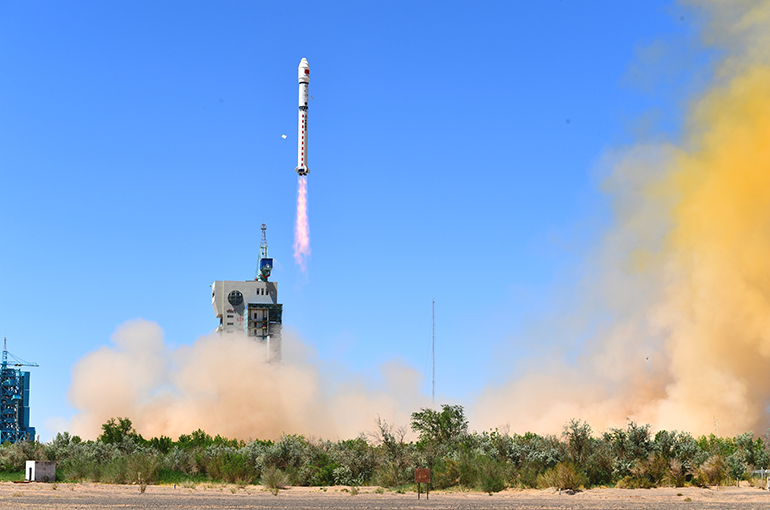 China Launches Satellite Group to Boost Space Computing Power, Xinhua Reports
China Launches Satellite Group to Boost Space Computing Power, Xinhua Reports(Yicai) May 14 -- China has put 12 new satellites into space, the first in a network of thousands that will provide in-orbit computing infrastructure to support advanced technologies, including artificial intelligence, Xinhua News Agency reported.
A Long March-2D rocket blasted off from the Jiuquan Satellite Launch Center in northwestern Gansu province today, carrying the first satellites in what has been dubbed the “Three-body Computing Constellation,” Xinhua said.
The new constellation is being developed by Zhejiang Lab and global partners, with the satellites in this launch produced by Adaspace Technology. Each one can perform 744 tera operations per second, providing a total of 5 peta operations per second of in-orbit computing power and 30 terabytes of storage capacity, the report said.
The array is intended to solve the problem of satellites being unable to process data in real-time, as they typically need to transmit data collected in space back to the Earth first, where it is processed by data centers. This is often limited by transmission and reception capabilities, leading to issues such as data loss and poor timeliness.
According to the plans revealed by Hangzhou-based Zhejiang Lab, the constellation will gradually develop into a space computing infrastructure with thousands of satellites and total computing power of 1,000 POPS.
It will greatly expand the boundaries of space technology applications and has a profound significance for the transformation of the aerospace industry, said Wang Jian, director of Zhejiang Lab and a member of the Chinese Academy of Engineering.
The satellites in today’s launch are also equipped with an 8 billion parameter AI model developed by Zhejiang Lab that can process in-orbit satellite data and conduct experimental tasks, including laser access for non-coplanar satellites and astronomical observations, according to the report.
Editor: Tom Litting